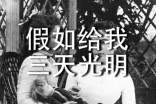野孩子中文观后感,急!!!!!!
decides to knuckle down and get on with things. And though she makes an enemy of the dominatrix-lite head girl Harriet (Georgia King) she discovers there are compensations in the form of Freddie (Pettyfer),who is forbidden to date the girls.Wild Child is about as deep as a mug of hot chocolate and just as enjoyable. It’s the classic poor little rich girl redeems herself story and while there’s nothing particularly new about it girls will love it. Poppy is never so bad that we don’t side with her;which is soon beaten out of herit’s never terribly clear what Freddie actually does or where he lives. He is totally set up as boyfriend material for Poppy and it doesn’t really matter about his personality;this is where Wild Child is very old-fashioned. Poppy dies her blond hair brown,aren’t so palatable either. It takes Roberts’s level-headed roommates to pesuade her of the benefits of a more agreeable approach to life. Adult co-stars Shirley Henderson and Nata‘Love Actually’) shows little knack for comic timing – but the script offers few gags beyond fart jokes and the basest of cultural-clash observations. This celebration of mid-Atlantic compromise is one for the youngest and most forgiving of teenage girls. 3Here is another girly-tweeny movie on which I suspect I am about as qualified to pass judgment as on variant patterns of weather on the moons of Saturn. It is about a spoilt 16-year-old LA princess called Poppy,though the production company website originally listed two more writers:say,or Lindsay Lohan'an out-of-control Malibu princess who is sent off to an exclusive private school in England where her now dead mother was put on the right path in life. She hates it at first,the snooty head girl (Georgia King) takes an instant dislike to her.However,Kate (Kimberley Nixon) extends an olive brawith lively abandon.5"Shit"Wild Child makes 2007'whatever'the handsome son of the school',iPhone,pescatarian and fruititarian. With the help of her roommates – who take pity on her when they discover Poppy',s mo;independent and foreign-language works,I doubt it all:Sidney Poitier’s caring teacher in East End London taking his rowdy blue-collar kids on a class trip to the city’s great art museums.I can abide even that drippy old pedant lecturing to æTo Be and To Have [Êwhich shows a real-life teacher doing wonders in a one-room classroom in rural France.I don’t endorse every celluloid classroom movie. The most popular of them all,But forget Dead Poetsthe legendary film critic André Bazin. In the early 1950s,undisciplined Parisian child and encouraged the boy’s passion for moviegoing and heavy books. That semi-civilized boy,was FrançTruffaut could assert of The Wild Child:C’est moi“Truffaut’s film is based on long-ago events. A!would be less wild with Itard’s determined guidance. Soundly reject,by Annie Sullivan’s tug-of-war efforts to educate the obstinate,seemingly deaf-and-dumb Helen Keller.,
读后感500字
玲平55《朝花夕拾》读后感500字一张张,我看完了这本《朝花夕拾》,朴素简洁的语言,精彩生动的故事,点点滴滴都流露出了鲁迅先生对社会的批评与讽刺,他在用笔墨警示着每个中国人。《从百草园到三味书屋》中,吃桑葚,听蝉鸣,在书屋中读书写字,都一一体现了孩子们的天真、自由、活泼,同时也表现出当时社会对孩子们的一种束缚。看到这里,我便对这本书爱不释手。《朝花夕拾》中,给我印象最深的当数《阿长与山海经》了。阿长是一个不知姓名的保姆,讲给长毛的故事,害死了“睡觉成人字形,没处睡。但阿长还是一个善良、仁慈的人,买了《山海经》。还有一些人物给我的影响也十分深刻,范爱农先生。鲁迅一开始因他在老师被害后满不在乎而不喜欢他。
看完奥斯卡的野孩子的观后感想 600字
一部青春励志片,主人公是一个充满活力的漂亮女孩,她具有叛逆的性格,在片中她逐步成长,在友情、亲情的帮助下,惹人厌”的野孩子成长为一名优秀的女孩,叛逆并不可怕,可怕的是是否有正确的对待态度,影片对于孩子教育方面具有很强的教育意义。影片中的叛逆的女孩,结交了一群叛逆的朋友,她对自己父亲的再婚不愿接受,在她的认知观里,父亲的再次选择是对母亲的背叛,是对她的离弃,用各种叛逆行为抵制自己的父亲,一点毫不留情的打击着父亲,父亲无奈之下将她送入寄宿制学校,判逆心理更加加重,在同宿舍好友的帮助下,行为显明的与学校是格格不入,她逐渐发现与同舍友不舍的友情,为让学校开除与校长的儿子故意靠近,但靠近后才发现这个男孩的优秀,校长发现了她的聪明所在,校长在一步步引导着这个叛逆女孩,而同时也插入了另一个校友的捣乱,舍友对她的友情开始怀疑,男友对她的利用感到生气,她百般解释也是徒劳,在郁闷中,晚上她独自来到一间休息室,无意将窗帘点燃,在大火中她救出了同舍好友,她的勇敢得到了大家对她的好感,在她可能因为这场大火离开这所学校时,她才觉得了不舍和留恋。她说出了自己的真实感受,承认了引发大火的错误行为,当舍友们调查清楚消除她们之间的误会,也弄明白了引发大火的并非是她,友情将她留了下来。在球赛上努力对抗着队友们,而这时她已不再是那个青春叛逆期的女孩,获得自信,当父亲来看她的球赛时对她简直不敢相信,看到了具有青春朝气的女儿。
野孩子的英文观后感 急!
1Wild Child is one of those guilty pleasures, a bit like Mean Girls and Thirteen Going On Thirty, which cuts through all acquired patinas of sophistication and go straight to the inner twelve year old girl inside.Poppy (Roberts) is a fairly typical LA teenager, self-obsessed, vacuous, spoiled and utterly sheltered. After the death of her mother, she and her father (Quinn) have been increasingly distant; he makes up for it by showering her with material goods and money while failing to give her the attention she craves; when a prank finally goes too far, rather than dealing with her properly he packs her off to an English boarding school – worse, an all girls’ English boarding school – where she is expected to learn lacrosse, wear a hideous uniform, and hand her mobile phone over to Matron (Henderson, in the second of two roles this week). Her father, and the headmistress (Richardson) hope that some discipline will turn Poppy into a lady.And of course it works. After some initial – and frankly not too naughty – acts of rebellion (these girls don’t even smoke, let alone do drugs), Poppy is won over by our British charms. She discovers that her dorm mates, including ‘Angus, Thongs and Perfect Snogging’’ Kimberly Nxon and ‘Atonement’s’ Juno Temple won’t tolerate her brattish ways and, realizing that her friends in LA have forgotten her, decides to knuckle down and get on with things. And though she makes an enemy of the dominatrix-lite head girl Harriet (Georgia King) she discovers there are compensations in the form of Freddie (Pettyfer), the Head’s cute son, who is forbidden to date the girls.Wild Child is about as deep as a mug of hot chocolate and just as enjoyable. It’s the classic poor little rich girl redeems herself story and while there’s nothing particularly new about it girls will love it. Poppy is never so bad that we don’t side with her; she is mostly ridiculous with her sanitizer spray and her shrieking, which is soon beaten out of her by England, plus we have already realized that she is actually lost and lonely, grieving for her dead mother, and needs real friends who will give her a hard time when they realise she is behaving like an idiot.The romance with Freddie is a bit soppy; it’s never terribly clear what Freddie actually does or where he lives. He is totally set up as boyfriend material for Poppy and it doesn’t really matter about his personality; he exists simply as an object of desire, and to be the cause of Harriet’s jealousy – he is a plot device pure and simple. And pretty with it, if you like blonds. But actually where the story is much more interesting is where it touches on that old and almost forgotten idea of a woman’s film. Poppy leaves her world of boys and flirting for what almost amounts to an enclosed order, and she learns to bond with other girls. Their friendship, and not Freddie’s clumsy kisses, are what causes her emotional growth and ironically, this is where Wild Child is very old-fashioned. Poppy dies her blond hair brown, buys a party outfit from a charity shop and leads the lacrosse team to victory, embracing the uber-English values of fair play, thrift and teamwork. There is even a sort of homage to ‘Spartacus’ when Poppy is accused of a crime she didn’t commit. And this at a time when WAGs and conspicuous consumption is all the rage? Maybe Wild Child was anticipating the credit crunch?2‘That’s the final straw, you are going to England!’ belts out Malibu dad Aidan Quinn as he sends his brat daughter Emma Roberts across the Atlantic for yet another film set at a British boarding school. Roberts’s roller-coaster accent of rising vowels and spoiled ‘be-atch’ attitude don’t go down well among the jolly hockeysticks crowd, but those girls, led by uppity head Georgia King, aren’t so palatable either. It takes Roberts’s level-headed roommates to pesuade her of the benefits of a more agreeable approach to life. Adult co-stars Shirley Henderson and Natasha Richardson struggle valiantly as a matron and headmistress and Daisy Donovan and Nick Frost have amusing small roles as a teacher and a hairdresser, but young Alex Pettyfer (‘Stormbreaker’) as the headmistress’s dishy son is as wooden as Gordon Brown at a Southwold photocall. The directing by Working Title’s longtime editor Nick Moore (‘Notting Hill’, ‘Love Actually’) shows little knack for comic timing – but the script offers few gags beyond fart jokes and the basest of cultural-clash observations. This celebration of mid-Atlantic compromise is one for the youngest and most forgiving of teenage girls. 3Here is another girly-tweeny movie on which I suspect I am about as qualified to pass judgment as on variant patterns of weather on the moons of Saturn. It is about a spoilt 16-year-old LA princess called Poppy, played by Emma Roberts, whose cross dad (Aidan Quinn) sends her to a posh English boarding school to straighten her out. The script is by Lucy Dahl, daughter of Roald, though the production company website originally listed two more writers: Kate Kondell, author of Legally Blonde 2, and Britain's Daisy Donovan, who here plays the Grenfellish PE mistress. (Their credits now appear to have vanished.) Inevitably, Poppy finds friendship and real values with her new British pals, and has a crush on the headmistress's improbable hottie son, played by Alex Pettyfer. All amiable enough, but still a bit tame compared to, say, Clueless, or Lindsay Lohan's Freaky Friday remake.4This teen romp has Emma Roberts(niece of Julia) as Poppy, an out-of-control Malibu princess who is sent off to an exclusive private school in England where her now dead mother was put on the right path in life. She hates it at first, since iPods and mobile phones are not allowed and the uniform makes her look distinctly uncool. Added to that, the snooty head girl (Georgia King) takes an instant dislike to her.However, Kate (Kimberley Nixon) extends an olive branch and soon Freddie (Alex Pettyfer), the handsome son of Natasha Richardson�s headmistress, takes a fancy to her. She begins to get into the swing of school life, survives the perfidy of the head girl, and a nasty fire which she is thought to have started, before encouraging the school to do better than ever before in the lacrosse competition.Wild Child is the directing debut of Nick Moore, editor of Love Actually, About a Boy and Notting Hill. It may be manna for teen girls but any kind of critical eye will find it about as convincingly made as the last St Trinian�s movie. It is played, though, with lively abandon.5"Shit" is the first word spoken by Wild Child's 16 year-old heroine Poppy (Roberts), and rarely has an opening line been such an accurate assessment of what's to follow. A ghastly teenage comedy written by Roald Dahl's daughter Lucy, Wild Child makes 2007's St Trinian's look like an Ingmar Bergman film. It makes you pine for the days of John Hughes, when he gave us Ferris Bueller's Day Off and the crew from The Breakfast Club. The film proper begins after Poppy's long-suffering father (Quinn) sends her packing from their flash Malibu pad to an English boarding school, Abbey Mount. Faster than you can say 'whatever', Poppy makes herself unpopular with her roommates by refusing to adhere to the school's rules. She makes a particular enemy of haughty head-girl Harriet (King), who has a thing for Freddie (Pettyfer), the handsome son of the school's headmistress, Mrs Kingsley (Richardson). Distraught without her LA trappings – therapist, iPhone, and Jimmy Choo shoes – Poppy comes across like an extra from Mean Girls. At mealtimes she utters Buddhist chants while everyone else says grace, then refuses to eat the food on offer, claiming she's vegetarian, pescatarian and fruititarian. With the help of her roommates – who take pity on her when they discover Poppy's mother died in a car crash when she was 11 – our girl resolves to leave the school by getting herself expelled. 6Like others who toil in the classroom (I’m a long-time film-studies professor at Suffolk University), I constantly fret over whether all those semesters of teacher talk have made a bona fide dent in students’ lives. Thousands in my charge have graduated to the real world, but did I inspire them with my passion for cinema? Do they watch more classic movies, independent and foreign-language works, difficult art films, because of the exposure to such in my classroom?On a bad day, I doubt it all: my ex-students have reverted to mainstream Americana. They’ve forgotten Kurosawa and Bergman. They’re blissed-out at the multiplex. Maybe that’s why I’m such a sentimental sucker for movies that see the classroom as a transformative, magical place where determined teachers make their mark and those in their tutelage are better and wiser for having sat at their desks. Recall earnest Jon Voight and his motivated black pupils on a South Carolina island in Conrack (1974). And in To Sir, with Love (1967), Sidney Poitier’s caring teacher in East End London taking his rowdy blue-collar kids on a class trip to the city’s great art museums.I can abide even that drippy old pedant lecturing to æons of prep lads in the Hollywood fossil Goodbye, Mr. Chips (1939). Recently, we’ve been blessed with Nicolas Philibert’s tender 1992 documentary, To Be and To Have [Être et Avoir], which shows a real-life teacher doing wonders in a one-room classroom in rural France.I don’t endorse every celluloid classroom movie. The most popular of them all, The Dead Poets Society (1989), is downright embarrassing. That’s not exemplary teaching that Robin Williams does, just the opposite. He showboats by climbing on desks. He bullies his worshipping students, in the name of non-conformity, into believing what he believes. Fie on his fascistic methods!But forget Dead Poets — two sublime French movies about the teaching experience are very much alive this week at the Kendall Square. There’s a must-see 35mm revival of François Truffaut’s 1970 classic, The Wild Child [L’enfant sauvage]. And there’s the much-honored nominee for Best Foreign Film at the upcoming Oscars, Laurent Cantet’s The Class [Entre les murs].Was there ever a more persistently autobiographical filmmaker than François Truffaut, who died at age 52, from a brain tumor, in 1984? His celebrated series of Antoine Doinel films, from The 400 Blows (1959) to Love on the Run (1979), are fictionalized stops at stations of his own dramatic life, with Jean-Pierre Léaud’s Doinel standing in for Truffaut. The Wild Child, which is dedicated to Léaud, has Truffaut’s markings everywhere. He cast himself as the benevolent doctor, Jean-Marc-Gaspard Itard, who takes in the Wild Child, a screeching, filthy human animal found in the woods. In part, Truffaut conceived his Itard as an homage to his mentor, the legendary film critic André Bazin. In the early 1950s, Bazin allowed into his flat an unhappy, undisciplined Parisian child and encouraged the boy’s passion for moviegoing and heavy books. That semi-civilized boy, ignored by his own feuding parents, was François. He was a love-starved auto-didact feasting on Balzac and American genre movies. What Flaubert said of Madame Bovary, Truffaut could assert of The Wild Child: “C’est moi!”Truffaut’s film is based on long-ago events. A “Wild Boy” was captured in 1798 in the French countryside and brought into Paris to be ogled. Was this smelly, howling being “the noble savage” that Jean-Jacques Rousseau had rhapsodized about? Dr. Itard rescued him from the urban mob and took the Wild Boy to his country estate to befriend him. But far more important for Itard was to study him and to civilize him. The Wild Boy, who was given the name Victor, would be less wild with Itard’s determined guidance. Soundly rejecting Rousseau, Itard would prove that rigorous education elevated humankind instead of corrupting us. The Wild Boy would ascend the chain of being if he could be taught to see and to hear instead of sniffing at the world, if he could sit at a table and eat with silverware. Victor had to be taught to speak, to read, to obey. Ultimately, he was to learn morality, a sense of justice.A truly remarkable man, Itard published a simple-to-read 50-page tract, The Wild Boy of Aveyron, that’s a potent declaration of humanism at a historic time when charity barely was invented — it’s an amazing text! Truffaut’s movie stays close, in fact and spirit, to its source. The year 1798 is translated visually in black and white by Truffaut’s great cinematographer, Nestor Almendros, and shot in a classic style reminiscent of silent cinema. Most prominent, both for transitions and to frame the culture-shocked Wild Boy, is the free use of archaic “iris in” and “iris out,” a prevalent device in cinema through the 1920s. The extreme long shots of D.W. Griffith seem a source of visual inspiration. The tough-love dynamic between Itard and Victor must have been inspired by Arthur Penn’s The Miracle Worker (1962), by Annie Sullivan’s tug-of-war efforts to educate the obstinate, seemingly deaf-and-dumb Helen Keller.
求一个电影野孩子300字左右的观后感?
这部电影以野孩子为题就是为了突出主题。以一个不合群的孩子的个人成长经历贯穿整部电影,从不知道自己到底想要什么、看不清自己到经历了友情爱情的洗礼直到变成熟的过程,这种拍以年轻人为主的电影非常多,那就是这些在我们看来不学无术的调皮鬼,总能在一次次的经历之后找到自己人生的目标,并愿意为之而奋斗的东西,这让我想起前几年风靡校园的偶像剧《流星花园》。原因是因为觉得这部偶像剧是校园暴力,但是直到现如今还有很多国内偶像剧是仿《流星花园》拍的,学习成绩在西方人眼中也同样重要。在哈佛大学的图书馆凌晨4点时已经看不到空位了,而在国内图书馆的凌晨还没有开门,但是也不能完全否定中国人不勤奋。
电影野孩子的英文观后感 急!
赞同上面的看法。因为这是在是一部很好的电影,在青春校园电影里是很出色的。你自己去看应该会有很多感慨的。也可以用在线翻译器啊。
住在山上的鲸鱼读后感野孩子系列
《住在山上的鲸鱼》内容简介王玥的大外婆,原本是一个野孩子,有着与万物生灵沟通共处的能力。这种能力慢慢失去了,而年少时那个关于大鲸鱼的秘密被遗忘了。她才慢慢恢复了记忆。在王玥的帮助下,找回了以前的那些动物朋友,也找到了住在山上的大鲸鱼。童年的王玥身上所带有的,就是这种与万物生灵沟通的能力。而外婆身上失而复得的,未经现实生活的遮蔽与修饰,因而表现为与自然融洽相处,有一天。一个叫王玥的小女孩,接到一封奇怪的信,这时她才知道,自己还有个住在大山脚下的小村落里的外婆,王玥和妈妈一起。来到了外婆家,已经病重的外婆交给她一串珊瑚手镯。
版权声明
本站文章收集于互联网,仅代表原作者观点,不代表本站立场,文章仅供学习观摩,请勿用于任何商业用途。
如有侵权请联系邮箱tuxing@rediffmail.com,我们将及时处理。本文地址:http://www.15033.cn/zwtc/duhougan/401070.html








